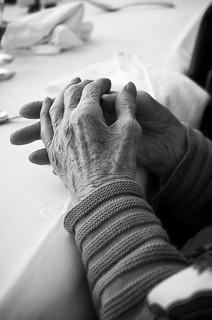 As your San Francisco nursing home abuse law firm, we understand that aging individuals and their families often face many tough decisions. It is difficult to come to the conclusion that your loved one can no longer live alone, especially when the loved one has long been the caretaker and suddenly finds him or herself in need of care. When facing this reality, it is important to be aware of the different levels of residential senior care available. In general, there are three primary categories of senior living options available:
As your San Francisco nursing home abuse law firm, we understand that aging individuals and their families often face many tough decisions. It is difficult to come to the conclusion that your loved one can no longer live alone, especially when the loved one has long been the caretaker and suddenly finds him or herself in need of care. When facing this reality, it is important to be aware of the different levels of residential senior care available. In general, there are three primary categories of senior living options available:
Independent livingfacilities can be a great option when a senior simply needs a little bit of added security. In these locations, the residents take care of the majority of their own daily needs. Offerings vary, but these facilities can provide a living community and may include assistance with cleaning, cooking, or home maintenance.
Assisted living is an intermediate level of care that falls between that offered in independent living and nursing home facilities. Residents generally live in their own housing unit, but they receive more assistance with daily living tasks such as bathing and meal preparation. Assisted living facilities may also monitor ongoing health issues, oversee medications, and provide transportation to and from medical appointments. Some assisted living communities monitor residents with memory issues and those in earlier stages of Alzheimer’s.
Nursing home care becomes appropriate when an individual needs more round-the-clock care. There are several subsets of nursing home care. Skilled care settings involved daily care overseen by a physician and carried out by nurses, including daily treatment from therapists and rehabilitative therapists. Intermediate care also involves physician oversight and trained nursing staff but does not include daily therapeutic treatments. Custodial care, considered the lowest level of nursing home care, focuses on the active assistance with the basic tasks of daily living (i.e. bathing, dressing, eating, using the bathroom) with the majority of care provided by aides rather than professional nurses.
Choosing the appropriate level of care is not a one-time event. It is important to periodically reassess the needs of each individual. These decisions should be a team effort including the aging individual, family members, and medical professionals.
Preventing Elder Abuse: A Community Effort
While we often use the term “nursing home abuse,” it is important to remember that abuse and neglect can occur in any setting. Elder abuse can even occur in a private home environment and can involve family members as well paid caregivers. Abuse can be physical, emotional, sexual, or financial. Neglect is also a serious matter and one that can be life-threatening. Actively preventing abuse and bringing an end to ongoing mistreatment is an effort that requires the participation of the entire community.
If you believe an elderly person is being mistreated, you should seek help. Although it is more than a decade old, “A Citizen’s Guide to Preventing and Reporting Elder Abuse” is a useful resource for concerned community members. The National Center on Elder Abuse also provides a wide-range of information.
Our office is also prepared to help the victims of elder abuse in Northern California with their legal rights. Attorney Greg Brod serves as an elder care lawyer for Sacramento, San Francisco, Oakland, and the surrounding Northern California communities. Call to schedule a free consultation.
See Related Blog Posts:
Danger Lurking Behind a Homey Exterior: Felony Charges Filed Against Operator of Non-Medical Senior Care Facility
Study Finds For-Profit Nursing Homes and Other Healthcare Facilities Place Money Above Care
(Photo by Jonas Boni)
 San Francisco Injury Lawyer Blog
San Francisco Injury Lawyer Blog

